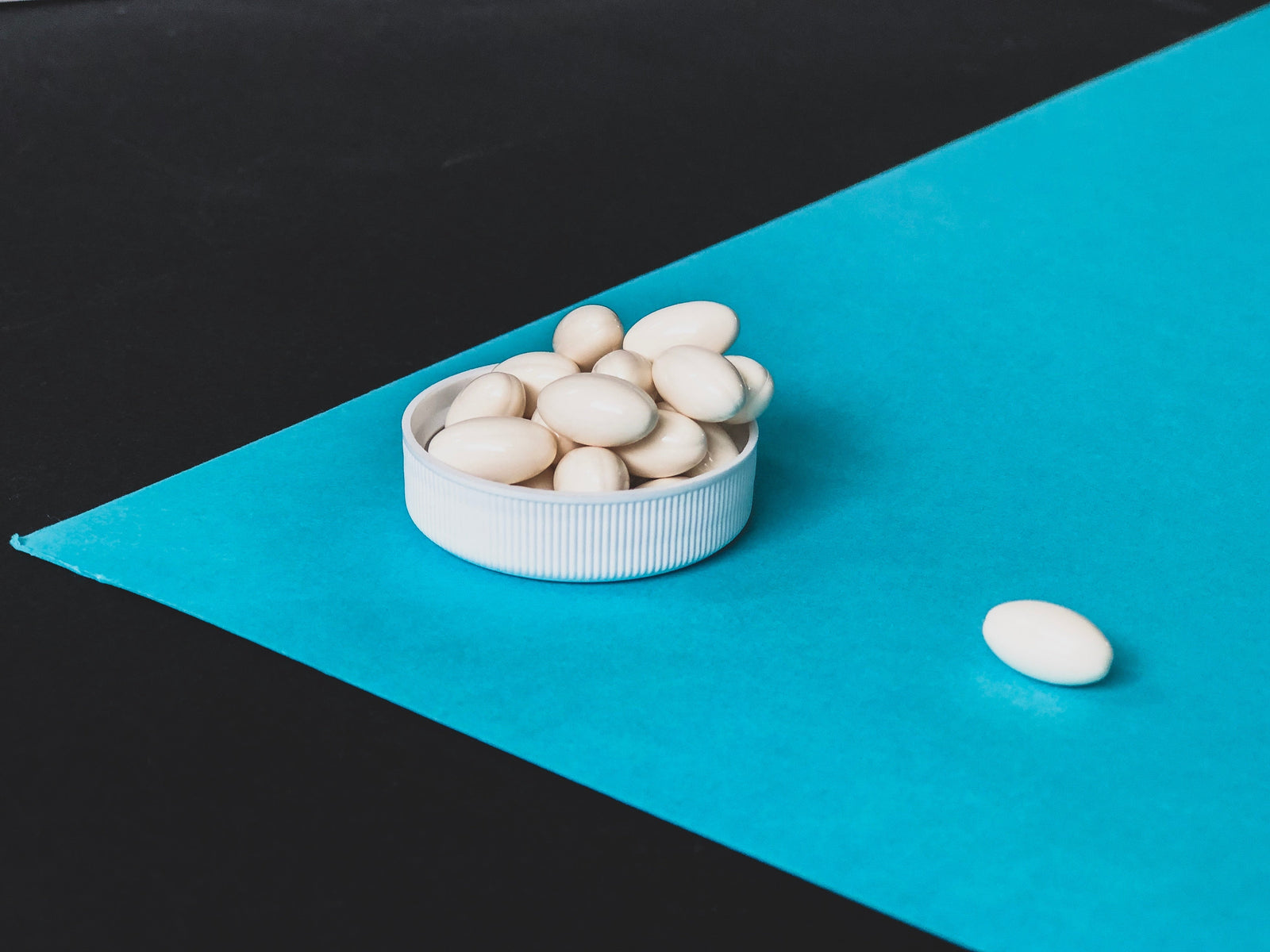Why CoQ10 Could Be the Missing Piece in Your Health and Performance Puzzle
Ever feel like your energy's been drained for no reason? Struggling with mental fog, persistent fatigue, or slower workout recovery? It might not be your routine—or your motivation. It could be your mitochondria running on empty.
Enter Coenzyme Q10 (CoQ10) — a powerhouse nutrient that not only fuels every cell in your body but also shields them from damage. Whether you’re an athlete trying to level up, someone managing cardiovascular concerns, or just looking to stay sharp as you age, CoQ10 is one of the most underrated but powerful tools in the supplement world.
Let’s break down what coq10 is, the benefits, how it works, and why it may just be the energy upgrade your body’s been missing.
What Is CoQ10?
Coenzyme Q10 (CoQ10) is a fat-soluble, vitamin-like antioxidant found in nearly every cell of the body. It plays two crucial roles:
-
Helps produce ATP (cellular energy) in the mitochondria
-
Acts as an antioxidant, protecting cells from oxidative stress
The highest concentrations are found in energy-hungry organs like the heart, brain, liver, and kidneys (Crane, Journal of Bioenergetics and Biomembranes, 2001).
How CoQ10 Works
In the mitochondria, CoQ10 functions as an electron carrier in the electron transport chain, allowing your body to generate ATP from the food you eat and the oxygen you breathe.
Without enough CoQ10:
-
Your cells make less energy
-
You become more susceptible to oxidative stress
-
Organs that require a lot of energy (like your heart or brain) begin to function poorly
This is why CoQ10 is not just helpful—it’s essential.
Symptoms of CoQ10 Deficiency
Low CoQ10 levels may result from:
-
Aging
-
Statin use
-
Chronic illness
-
Poor diet
Symptoms include:
-
Chronic fatigue
-
Poor recovery after exercise
-
Brain fog
-
Weak immune response
-
Muscle pain
-
Cardiovascular issues
(Bentinger et al., Biofactors, 2007)
Benefits of CoQ10
1. Enhances Cellular Energy and Athletic Performance
CoQ10 is directly involved in ATP production, which powers muscle contractions, endurance, and oxygen use during physical activity. In athletes, CoQ10:
-
Increases VO₂ max (oxygen utilization)
-
Improves time to exhaustion
-
Enhances peak power output
-
Reduces oxidative damage from intense training
(Cooke et al., Nutrition, 2008)
“CoQ10 is a key supplement in mitochondrial support and athletic output. It’s one of the few supplements shown to significantly boost peak performance in trained individuals.”
– Dr. M. Cooke, lead researcher
2. Supports Heart Health and Circulation
The heart uses more energy than any other muscle in your body. CoQ10 helps:
-
Reduce blood pressure (mild to moderate hypertension)
-
Improve cardiac output and ejection fraction
-
Prevent and reverse statin-induced muscle weakness
-
Protect the heart from oxidative stress and inflammation
A 2-year clinical trial published in JACC: Heart Failure found that CoQ10 supplementation significantly reduced hospitalizations and mortality in heart failure patients (Mortensen et al., 2014).
3. Boosts Brain Health and Cognitive Performance
The brain is also highly energy-demanding. CoQ10:
-
Enhances mitochondrial efficiency in neurons
-
Protects against age-related cognitive decline
-
Reduces oxidative damage in the brain
It has shown promising effects in conditions like Parkinson’s and early Alzheimer’s, where mitochondrial dysfunction plays a major role (Beal, Biochimica et Biophysica Acta, 1998).
4. Improves Fertility and Reproductive Health
In both men and women, CoQ10 is essential for reproductive function. Studies show it:
-
Improves sperm count and motility
-
Protects egg cells (oocytes) from oxidative damage
-
Supports ovarian reserve in aging women
(Safarinejad, Journal of Urology, 2009)
5. Reduces Migraine Frequency and Severity
CoQ10 has been clinically shown to reduce migraine attacks by:
-
Improving mitochondrial energy metabolism
-
Reducing inflammation in the brain
-
Supporting neurotransmitter balance
(Sandor et al., Neurology, 2005)
6. Protects Against Oxidative Damage
As a potent antioxidant, CoQ10 helps:
-
Neutralize free radicals
-
Recycle vitamins C and E
-
Prevent DNA damage and inflammation
-
Reduce the risk of chronic diseases like cancer, diabetes, and neurodegeneration
(Ernster & Dallner, Biochimica et Biophysica Acta, 1995)
CoQ10 vs Other Antioxidants: A Comparison
| Antioxidant | Primary Function | Unique Benefits | Solubility | Regenerates Other Antioxidants | Bioavailability |
|---|---|---|---|---|---|
| CoQ10 | Energy production & antioxidant | Heart health, ATP synthesis, brain performance, recovery | Fat-soluble | Yes (C & E) | Moderate; best with fats |
| Vitamin C | Neutralizes free radicals in fluids | Immunity, collagen support, skin health | Water-soluble | Yes (E) | High |
| Vitamin E | Protects lipid membranes | Skin repair, anti-aging, vascular protection | Fat-soluble | No | Moderate with fats |
| ALA (Alpha-Lipoic Acid) | Antioxidant in water & fat | Blood sugar control, nerve repair, liver health | Both | Yes | Moderate; R-ALA preferred |
Best Way to Supplement with CoQ10
1. Choose Ubiquinol for Maximum Absorption
-
Ubiquinol = the reduced, active form (ideal for 40+ or gut issues)
-
Ubiquinone = standard form, requires conversion
2. Go Oil-Based or Liposomal
-
Softgels with fats (MCT oil, olive oil) = better absorption
-
Liposomal formulas = enhanced bioavailability
3. Take With Fat
-
Take CoQ10 with meals containing healthy fat to optimize absorption.
4. Stick With It
-
CoQ10 levels build up gradually. Consistency is key.
-
Full effects are seen after 4–12 weeks of daily use.
5. Clinical Doses
-
General wellness: 100–200 mg/day
-
Heart health or statin support: 200–300 mg/day
-
Endurance & performance: 200–300 mg/day
-
Clinical/advanced use: Up to 1200 mg/day (under doctor supervision)
(Weber et al., Molecular Aspects of Medicine, 1997)
Risks and Side Effects of CoQ10 Supplementation
While Coenzyme Q10 (CoQ10) is widely considered safe and well-tolerated by most people, it’s important to understand the potential side effects, interactions, and usage precautions—especially if you're taking other medications or have underlying health conditions.
Is CoQ10 Safe?
Yes. CoQ10 has been studied extensively and shown to be safe in doses up to 1,200 mg per day for extended periods without serious adverse effects (Rosenfeldt et al., BioFactors, 2003). However, as with any supplement, individual responses may vary.
Common (Mild) Side Effects
Though rare, some people may experience the following:
-
Nausea or upset stomach
-
Loss of appetite
-
Diarrhea
-
Mild headaches
-
Insomnia (especially if taken late in the day)
These effects are generally mild and temporary, often resolving when the supplement is taken with food or earlier in the day.
Potential Drug Interactions
CoQ10 may interact with certain prescription medications. The most notable interactions include:
-
Blood Thinners (e.g., Warfarin):
CoQ10 may reduce the effectiveness of anticoagulant medications, potentially increasing the risk of clotting (Rosenfeldt et al., 2003). -
Blood Pressure Medications:
CoQ10 can have a mild blood pressure-lowering effect, which may enhance the action of antihypertensive drugs and lead to hypotension in some individuals. -
Chemotherapy Drugs (e.g., Doxorubicin):
There is some evidence that CoQ10 may protect the heart during chemotherapy, but interactions should always be discussed with your oncologist.
Tip: Always consult with a healthcare provider before starting CoQ10 if you’re taking prescription medications—especially blood thinners or antihypertensive agents.
Who Should Use Caution?
You should talk to your doctor before taking CoQ10 if you:
-
Are pregnant or breastfeeding (there’s limited safety data)
-
Have low blood pressure or hypotension
-
Are taking multiple medications, particularly for heart or blood-related conditions
-
Have a surgery scheduled, as CoQ10 may affect blood clotting
Quality Matters
Some CoQ10 supplements contain additional ingredients like piperine (black pepper extract) to boost absorption. While effective, piperine may increase the bioavailability of medications, altering their intended effects.
To minimize risk:
-
Choose third-party tested brands
-
Start with a lower dose (100 mg/day)
-
Gradually increase based on tolerance and need
Final Word on Safety
For the vast majority of people, CoQ10 is exceptionally safe, especially when used as directed. By sticking to evidence-based dosing, taking it with food, and choosing high-quality formulas, most users experience only the benefits—without the drawbacks.
Frequently Asked Questions About CoQ10
What’s better: ubiquinone or ubiquinol?
Ubiquinol is more bioavailable and better for individuals over 40 or with impaired absorption.
Can CoQ10 replace statins?
No, but it complements statins by reducing side effects like muscle pain and fatigue.
Can it help with chronic fatigue syndrome?
Yes. It improves mitochondrial function and helps restore energy balance.
Is CoQ10 vegan?
Many supplements use gelatin capsules. Look for vegan-certified or plant-based softgels.
Conclusion: Is CoQ10 Worth It?
If you’re chasing better energy, improved brain and heart function, and faster recovery, CoQ10 is one of the most effective, science-backed supplements available today. It’s not a stimulant—it’s foundational fuel for every cell in your body.
Backed by decades of clinical research, CoQ10 offers measurable improvements in performance, resilience, and longevity.
From peak power output to mitochondrial repair, it’s not just about living longer—it’s about living better.
Let me know if you'd like this article turned into:
-
A PDF download
-
A formatted blog or email campaign
-
A social media series (carousel or infographic)
-
A supplement landing page for product integration
I'm ready to support your next move.
Find similar articles:
Supplements






